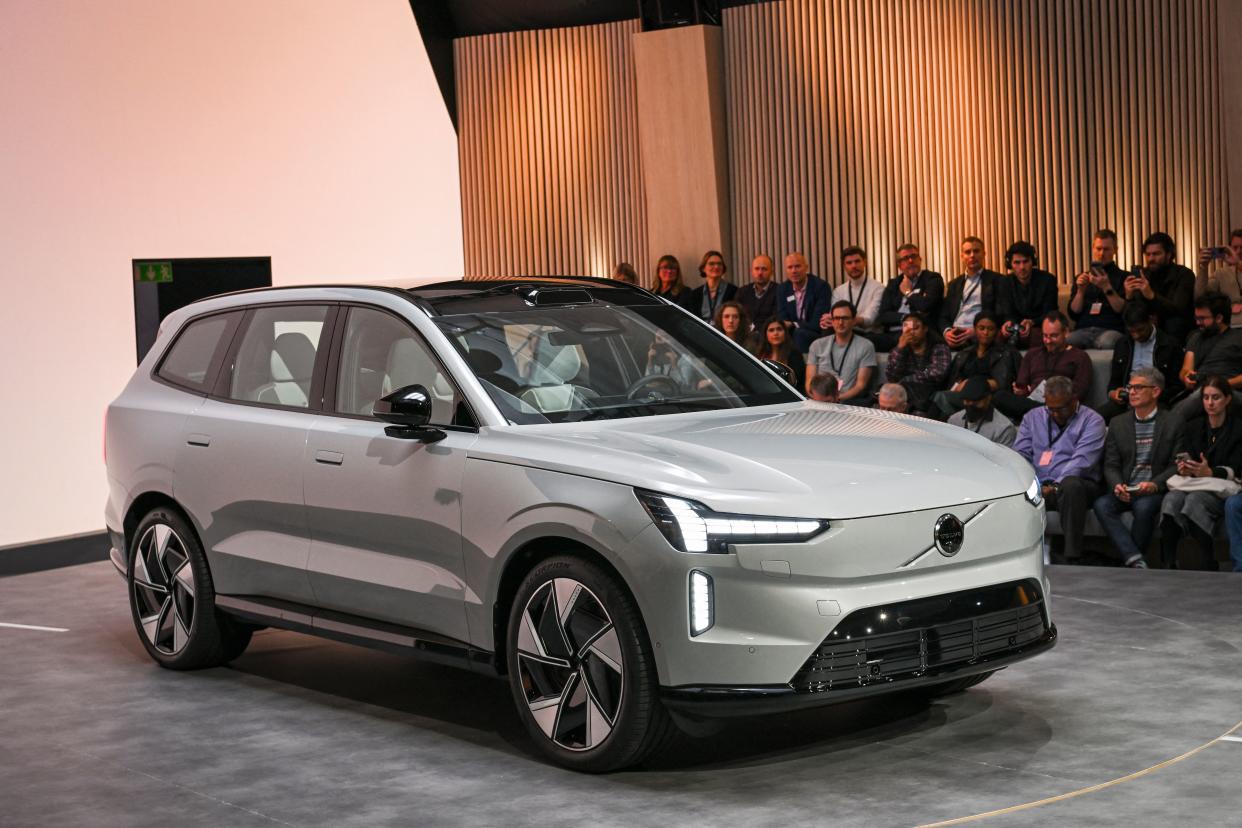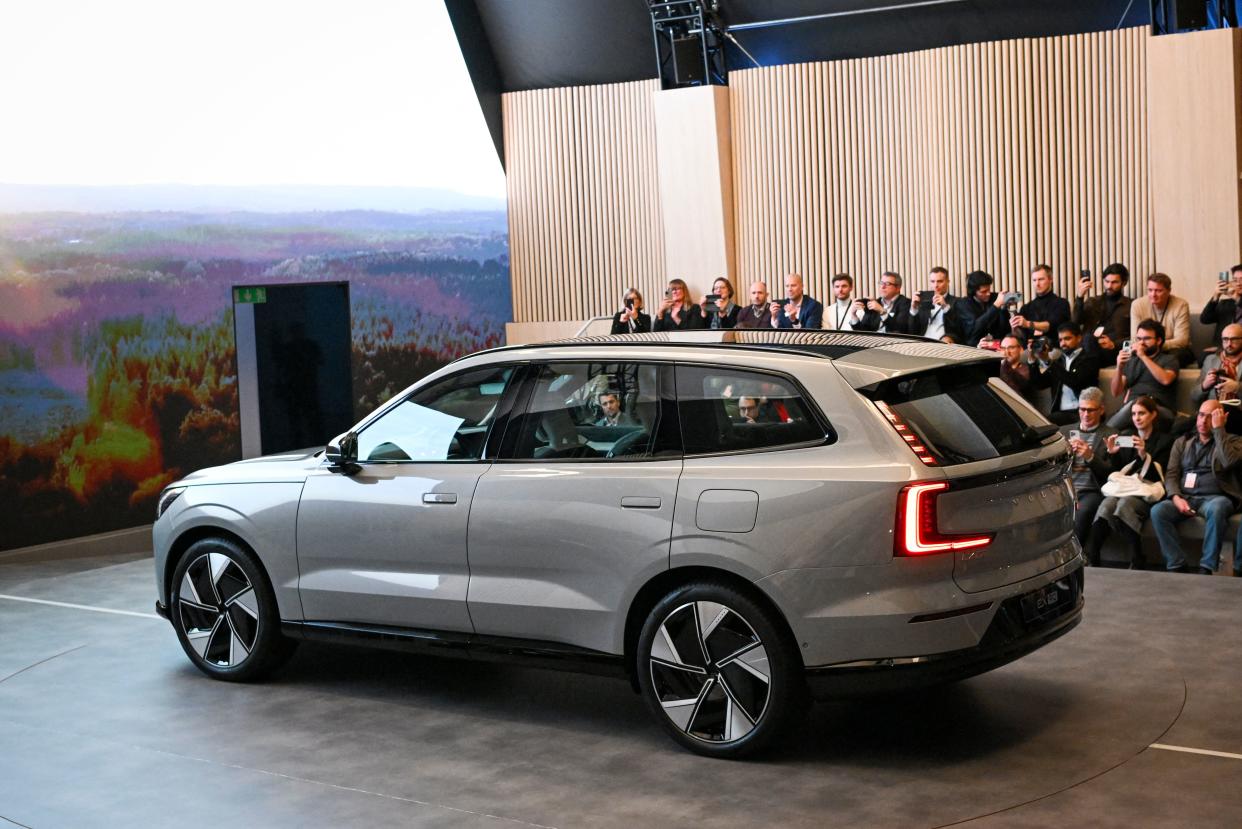Volvo US CEO: Learning to 'live with' supply chain issues as demand remains strong
Volvo (VOLCAR-B.ST) has been one of the hottest automotive brands for some time now in the premium and luxury space. The Swedish automaker had a strong October with sales up nearly 9% year over year, with its Recharge EV model sales up 20% compared to a year ago.
But despite the good performance, the effects of the lingering supply chain crisis that plagues the industry remain.
“Absolutely, we are kind of living that kind of a world too,” Anders Gustafsson, president and CEO of Volvo Cars USA, told Yahoo Finance regarding parts shortages in Volvo’s manufacturing operations. “I know what I know today, but I don't know if it's going to be additional COVID issues on our supplier side, and that's kind of a troublesome. But also we have learned to live with it, and we plan and take decisions based on week to week.”
That being said, Gustafsson, who’s also SVP of Volvo Cars Americas, said recent weeks have been quite good and demand has been strong in the U.S. market, along with Canada and even Brazil. Though the numbers aren’t out yet, Gustafsson says November sales numbers make him “very happy.”
Looking ahead for the brand, Volvo’s first dedicated EV — the EX90 SUV — is almost here.

It’s predecessor, the XC90, is a very popular model for the brand, so Volvo wants to get it right when it comes to its 7-seat SUV offering.
While Volvo offers other EVs in its product portfolio under the Recharge label, those models are both offered as ICE (internal combustion engine) as well as EV offerings, meaning they aren’t dedicated EVs, whereas the EX 90 will be a dedicated platform (shared with sister EV brand Polestar).
Among other things the EX90 will offer dual motors for all-wheel drive, have around 300 miles of EV range, and offer enhanced power features like bidirectional charging. And it will be built in the U.S.
“First of all, the current XC90 is one of our best sellers. Even if I love all the kids, the product portfolio, I would say the seven seater is a very, very strong offering in the U.S. market, then, of course the car is going to be built here in the U.S.,” Gustafsson says. “So I'm very happy that we start production here in the U.S., and of course, this is the first car in our portfolio that is 100% focused on electrification.”

Volvo says the EX90 will start production at its South Carolina plant later next year.
One of the features that Gustafsson believes will set Volvo apart from its rivals is the software and services offerings that will come with its cars. Like Tesla which pioneered the feature, the EX90 will offer OTA (over the air) updates for the vehicle, meaning it will be continually updated over time during the course of the car’s service life.
Tech offerings like deep integration of Google, making Volvo cars the first to offer Google Home in its cars, and cutting-edge LIDAR 3D technology for autonomous features, mean the need for Volvo to bring in software and engineering tech in house.
It’s part of a tech arms race that’s consuming the automotive world, with brands like Ford hiring consistently from Silicon Valley.
“That's really what we're working with right now - it goes fast - and it's always better. I didn't say cheaper, I said better to have that kind of a core competence inside the company,” Gustafsson says about the arms race to bring more tech in house.
“Because then we can be faster. And for a car manufacturer a lot of things are about, you know speed; speed cannot compensate [for] the wrong direction, but if we are in the right direction, and I think we are, then this is going to be a successful tool to achieve that.”
—
Pras Subramanian is a reporter for Yahoo Finance. You can follow him on Twitter and on Instagram.
Read the latest financial and business news from Yahoo Finance
Download the Yahoo Finance app for Apple or Android
Follow Yahoo Finance on Twitter, Facebook, Instagram, Flipboard, LinkedIn, and YouTube
